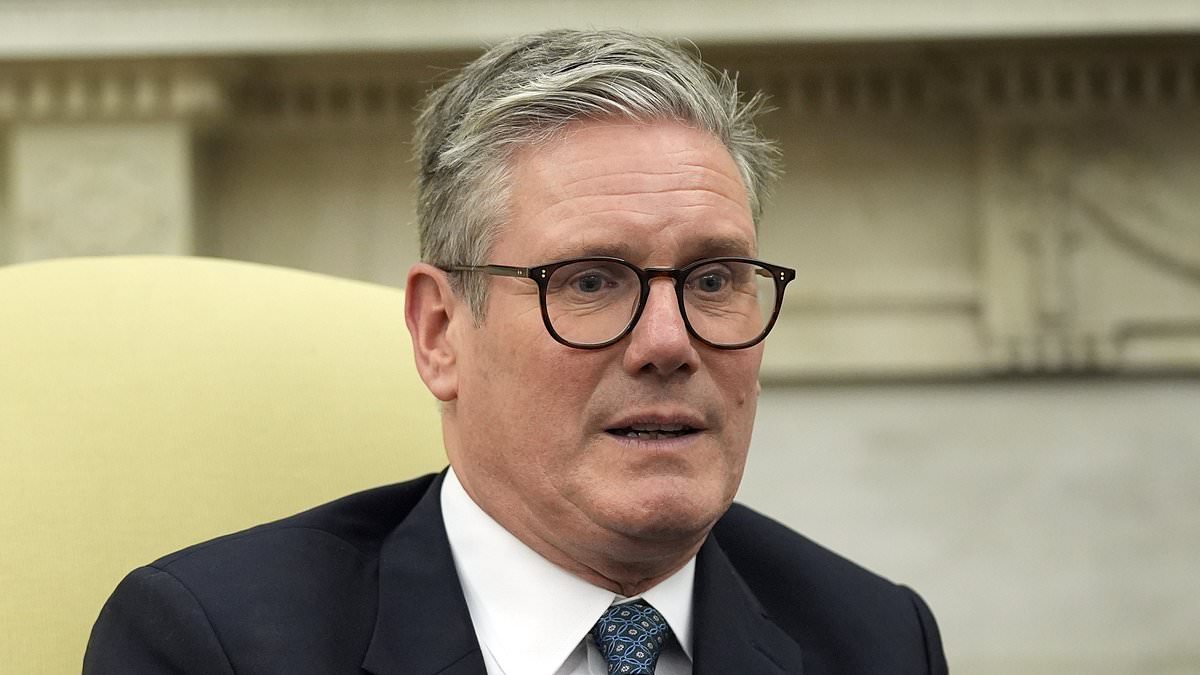The Prime Minister was under fire last night for refusing to say when he will provide the armed forces with a cash boost as a Labour split emerged over spending.
Senior defence figures criticised his refusal to provide a timetable for replenishing weapons stocks and growing the Army, while a veteran Labour backbencher warned more cash risked ‘escalating war’.
Sir Keir Starmer is in Washington DC to meet US President Joe Biden and attend a Nato summit, but the row last night threatened to overshadow his first overseas engagement as Prime Minister.
Britain currently spends 2.3 per cent of GDP on defence. The previous Conservative government pledged to hit 2.5 per cent by 2030 but Labour has repeatedly refused to say when it will reach that target.
The Government is poised to commission a strategic defence review to assess where additional funds will be directed, which it says it will aim to complete in less than a year. Only after that will the new Government be able to set out a ‘roadmap’ to increasing spending to 2.5 per cent of GDP.
Other Nato countries such as Poland and the US are already spending almost double that.
No 10 yesterday slapped down armed forces minister Luke Pollard after he suggested defence spending would increase only if the Government is able to boost economic growth.
Mr Pollard told BBC Radio 4’s Today programme: ‘If we don’t grow the economy there won’t be the money to support those public services and the ambitions we have, and that includes defence.’
But a senior Downing Street official said: ‘Commitment to defence is absolute and we are confident that we will get growth in the economy. I don’t accept that we have to wait for growth to get to the other.’
Sir Keir said he wanted the strategic defence review to report within a year but would not commit to hitting the 2.5 per cent defence spending target by the time of the next election.
He told reporters travelling with him to Washington: ‘We are committed to the 2.5 per cent. That is obviously subject to our fiscal rules, but the commitment is there.’
Last night former Conservative armed forces minister James Heappey said: ‘The armed forces cannot wait any longer. My message to the Prime Minister is to get on with it and start finding the money.’
He added the 2.5 per cent rise ‘achieves nothing more than bringing the Ministry of Defence’s budget into balance’.
Former MI6 head Sir Richard Dearlove said defence spending needed to be at 3 per cent of GDP to meet threats from Russia, China and their allies.
He told Times Radio: ‘There is an urgency, a major problem. We have a major war on the European continent, and it is not just that war, it is the wider dimensions such as Chinese support for Russia, and the support of Iran and North Korea.
‘People might not accept this from me but [defence spending] is much more important than the National Health Service.’
But Labour MP Diane Abbott, writing on X yesterday, said: ‘The pressure should be resisted. We need to prioritise new spending on the NHS, housing, education and decent welfare support, not escalating war.’
Defence Secretary John Healey said yesterday another reason for more defence spending was that the UK could soon be expected to play a bigger role in European security as the US was expected to prioritise the Indo-Pacific region in future.
